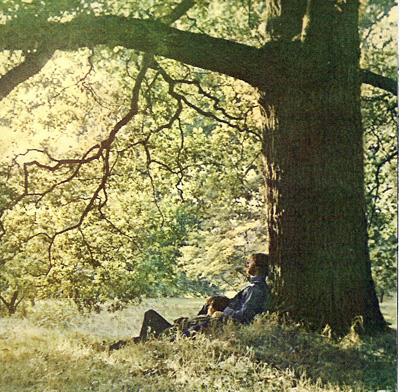
Plastic Ono Band (1970)

1. Mother
2. Hold On
3. I Found Out
4. Working Class Hero
5. Isolation
6. Remember
7. Love
8. Well Well Well
9. Look at me
10.God
11.My Mummy's Dead
12.Power to the People*
13.Do the Oz*
* Bonus CD Tracks
Few solo debuts have landed with the seismic emotional force of Plastic Ono Band. Released in December 1970, it remains—by near-universal consensus—not only John Lennon’s finest solo work, but arguably the most vital and devastating post-Beatles statement made by any of the four. It is a raw, harrowing, and at times painfully intimate confessional, delivered not with fanfare or flourish, but with the stripped-down certainty of a man no longer interested in myth.
The backdrop is well known. Lennon had undergone primal therapy with Dr. Arthur Janov in California, a process intended to unlock childhood trauma through unfiltered expression. What emerged from that process was not just a record, but a reckoning. Gone were the psychedelic trappings, the whimsical slogans, the sonic experimentation of the previous years. What remained was Lennon, naked in every sense—musically, emotionally, even vocally.
And yet, for all its psychological weight, the album is as musically focused as anything Lennon had produced since Revolver. The arrangements are sparse, almost skeletal—bass (Klaus Voormann), drums (Ringo Starr), and piano or guitar from Lennon himself. Phil Spector, nominally the producer, kept a rare and welcome distance. The result is a sound that is clear, direct, and utterly unencumbered. Lennon has nowhere to hide, and he does not try.
The songs are uniformly superb. Mother, with its tolling bells and crescendoing cries, sets the tone—an open letter to the parents who abandoned him, rendered in devastating simplicity. Working Class Hero, biting and whispered, is as close as Lennon ever came to folk protest. Isolation is as bleak as its title suggests. God strips away every last illusion (“I don’t believe in Beatles,” he announces, with the finality of a gavel), and closes with the staggering admission, “I just believe in me. Yoko and me.” There are moments of musical lightness—Love is a delicate ballad, almost hymnal in its delivery—but even these are tinged with fragility. There is no grand catharsis here, no redemption arc. The pain isn’t resolved; it is simply voiced. And in that voicing, there is power.
It is not an easy listen. It was never intended to be. Had this record come from a lesser-known figure, it might have been dismissed as self-indulgent therapy on vinyl. But this was John Lennon—voice of a generation, ex-Beatle, cultural lightning rod—and so it became something else entirely. It became a window into the person behind the persona.
Perhaps the most surprising thing is how well the album endures. Despite its starkness—and in part because of it—it continues to resonate. There are no hits here, no concessions to radio. But taken as a whole, it remains one of the most important artistic statements to emerge from the wreckage of the 1960s. Plastic Ono Band did not attempt to comfort. It demanded that you confront. And in doing so, it redefined not just Lennon, but what popular music could be.
Go back to the main page
Go To Next Review